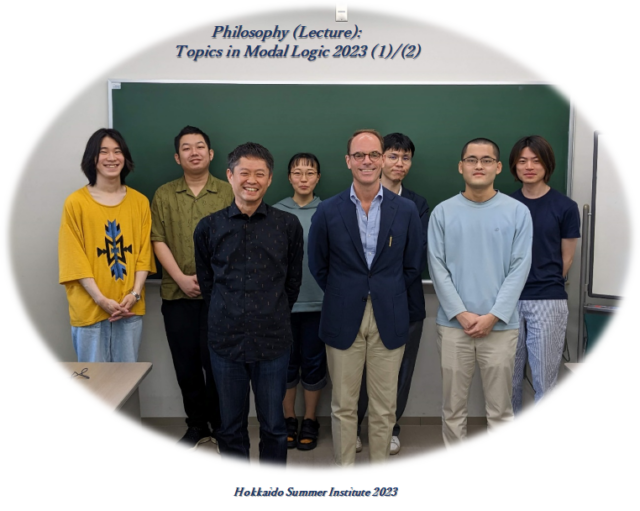From June 12 to 16, the Hokkaido Summer Institute (HSI) 2023 course “Philosophy (Lecture): Topics in Modal Logic 2023 (1)/(2)” was offered by the Graduate School of Humanities and Human Sciences. Associate Professor Katsuhiko Sano, from the Laboratory of Philosophy and Ethics, and Professor Thomas Ågotnes, from the University of Bergen in Norway, served as lecturers. The course was offered on campus in the same manner as “Philosophy (Lecture): Topics in Applied Modal Logic 2022.”
In this course, whose prerequisites for application were elementary knowledge of logic and a certain degree of proficiency, students learned modal logic, which deals with necessity and possibility; epistemic logic, which deals with knowledge including shared knowledge of multiple agents and mutual knowledge; and dynamic epistemic logic, which deals with dynamic changes in knowledge.
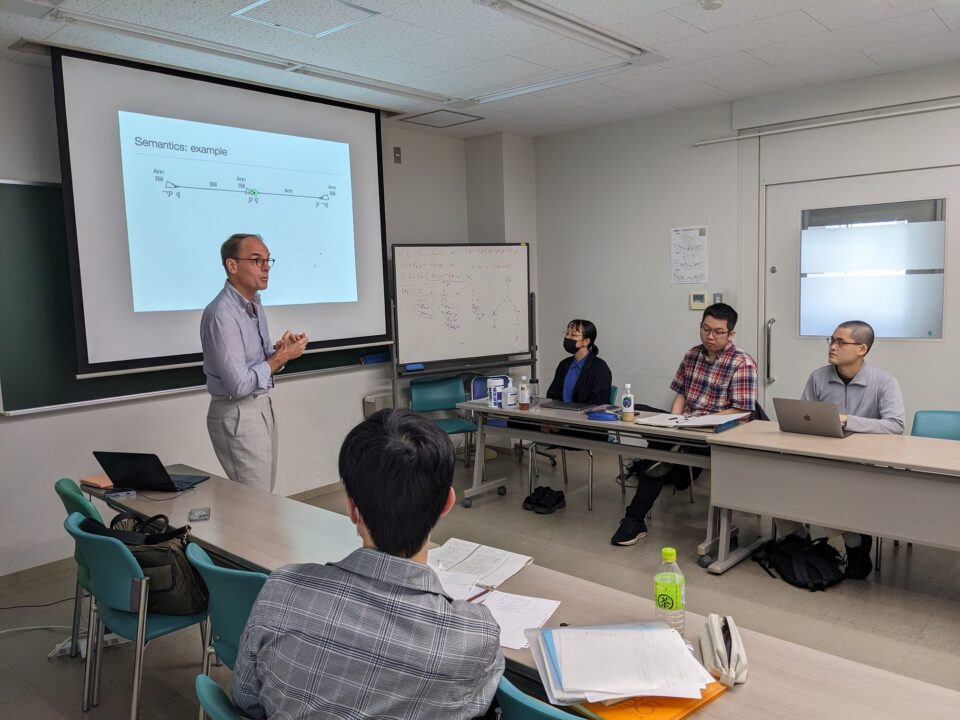
Professor Ågotnes lectures.
The first lecture commenced with the lecturers and students introducing themselves, followed by an explanation of the course’s overview. In the final session of each day from Day 2 to Day 4, Professor Ågotnes presented a practice problem. Students worked on the problem, explained their answers, and discussed the answers with the lecturers and other students, deepening their understanding of the topic.
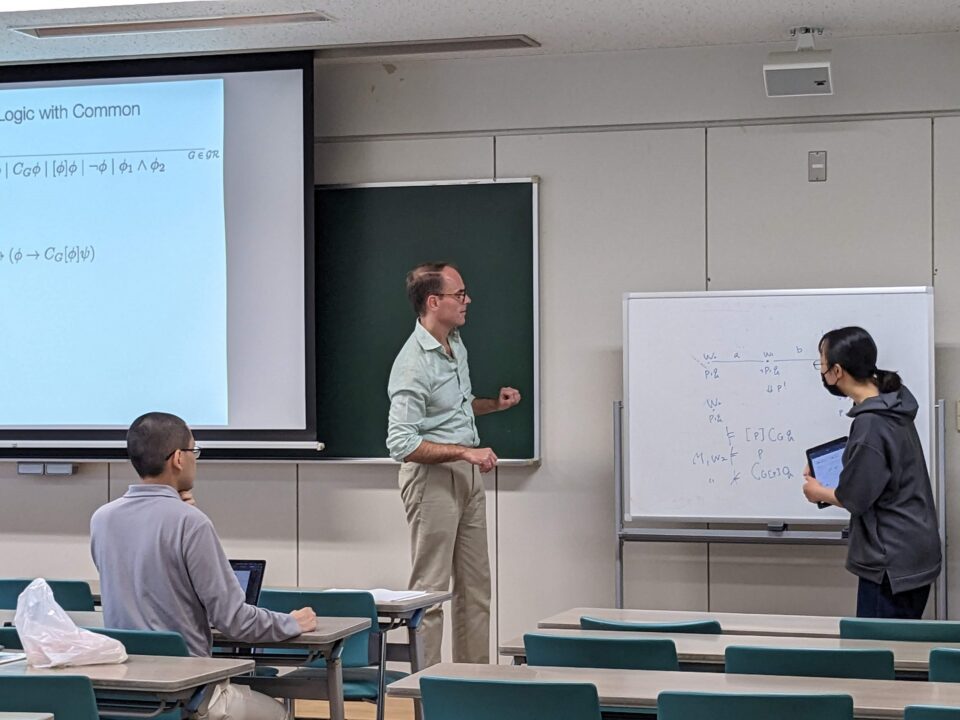
The students learned about the roles of complex mutual knowledge, such as “I know that others know that I know what they know…,” dynamic changes in knowledge and belief due to people’s actions and utterances, and differences between the knowledge of globally accepted facts and procedural knowledge (i.e., know-how), gaining insights into how real-life phenomena can be elucidated by logic.
On the final day, the students were divided into two groups, and they presented what they had learned in this intensive course, answering questions from the lecturers and other students.
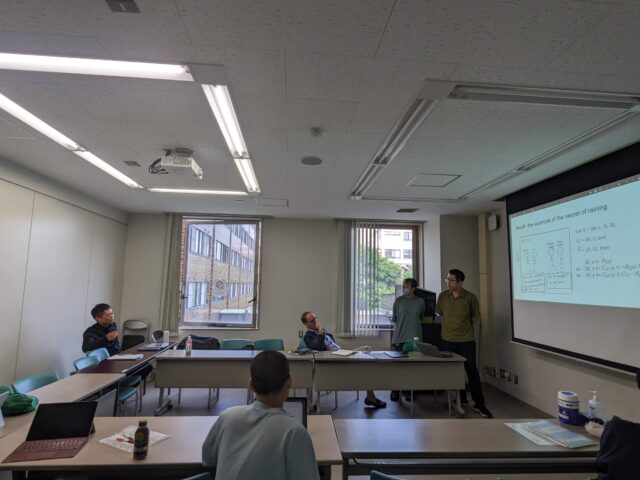
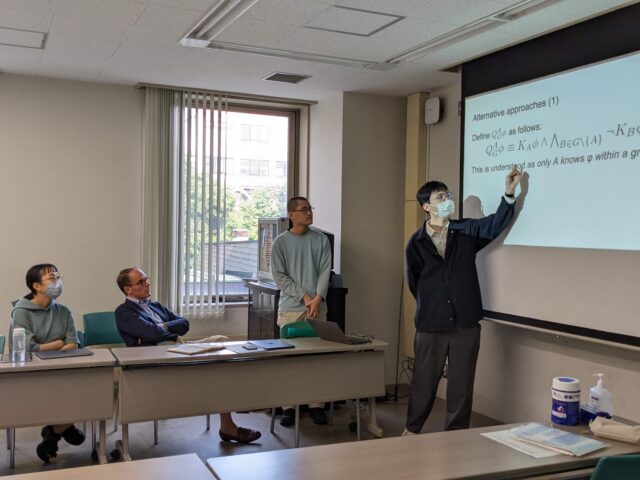
On the final day, the students were divided into two groups, and they presented what they had learned in this intensive course, answering questions from the lecturers and other students. After the presentations by both groups, Professor Ågotnes commented that both groups had made truly interesting presentations about a new notion of group knowledge based on the lectures. He then concluded the course with a summary of the entire period.
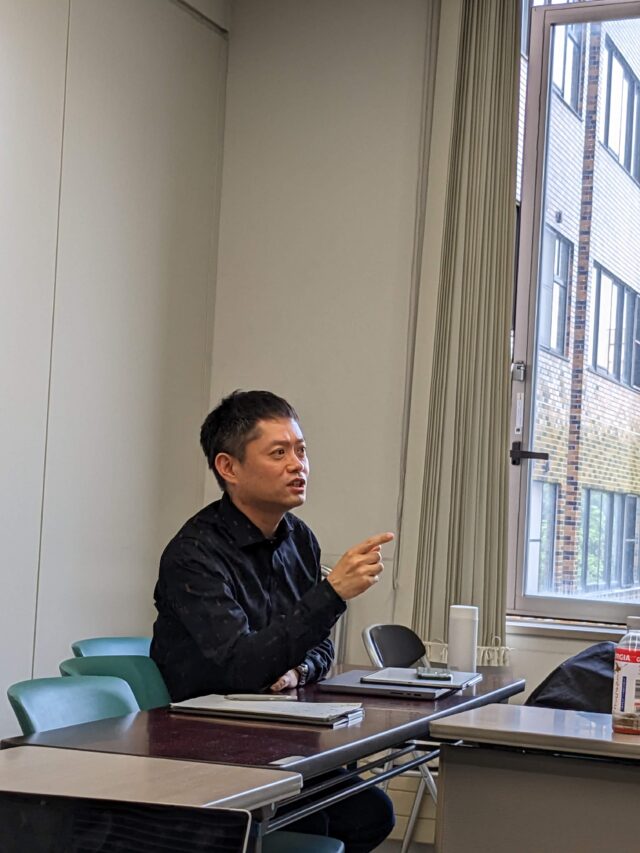
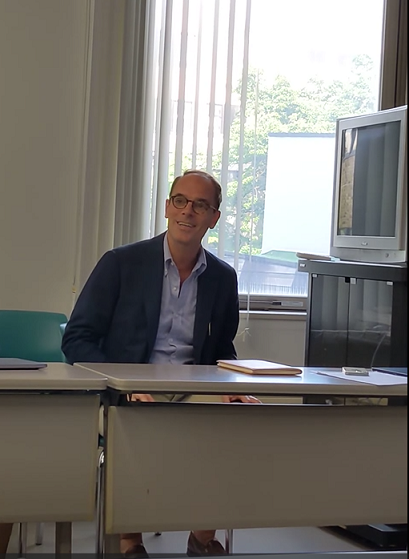
The students apparently had five fulfilling days, learning broad aspects of modal logic in-depth, including epistemic logic, group knowledge, multi-agent systems, and dynamic epistemic logic.
